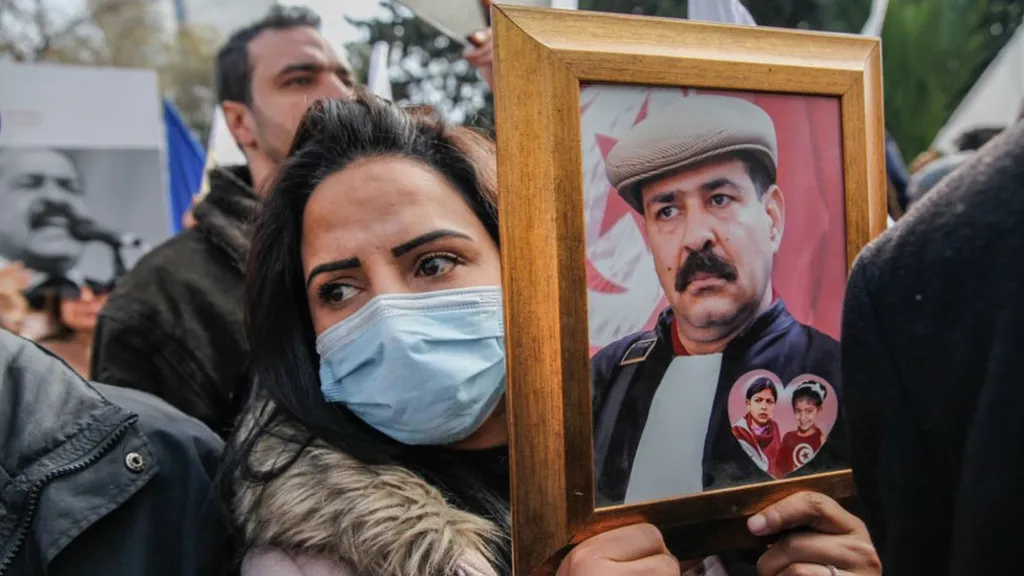Tunisian Judiciary Imposes Death Penalty on Four for Chokri Belaid’s Murder
A court in Tunisia has handed down severe sentences in connection with the assassination of political leader Chokri Belaid in 2013. Four individuals have been sentenced to death, while two others have been sentenced to life imprisonment for their involvement in the murder.
Chokri Belaid was found shot dead in his car in the capital city of Tunis, sparking widespread outrage across the country. Belaid, a prominent leftist politician, was known for his vocal criticism of the ruling Islamist Ennahda party. He had accused the party of ignoring violence carried out by extremists against secularists.
The trial, which saw a total of 23 individuals charged in connection with Belaid’s killing, culminated in the sentencing announced live on national television after 15 hours of deliberation. Prosecutor Aymen Chtiba expressed satisfaction with the verdict, stating that justice had been served.
Belaid’s assassination, along with the subsequent killing of another left-wing opposition figure, Mohamed Brahmi, six months later, was claimed by jihadists affiliated with the Islamic State. These incidents triggered mass protests from Tunisians, marking a significant moment in the country’s post-Arab Spring political landscape.
Today, Tunisia is under the governance of President Kaïs Saïed, who has faced criticism for his perceived authoritarian actions. Saïed has made controversial moves such as dissolving the country’s main legal body, dismissing the prime minister, and suspending parliament, leading to accusations of autocratic behavior.
President Kaïs Saïed’s leadership has drawn criticism for what some perceive as autocratic tendencies. His actions, including the dissolution of key institutions, the removal of the prime minister, and the suspension of parliament, have raised concerns about the state of democracy in Tunisia.
Saïed’s consolidation of power comes amidst a backdrop of ongoing political instability and economic challenges in the country. Tunisia, hailed as the birthplace of the Arab Spring, has struggled to transition smoothly to a stable and democratic system since the ousting of longtime autocrat Zine El Abidine Ben Ali in 2011.
While the sentencing in the case of Chokri Belaid’s assassination represents a step towards accountability for political violence, it also highlights the broader issues facing Tunisia’s political landscape. The country continues to grapple with the legacy of authoritarianism, the threat of extremism, and the quest for genuine democratic reform.
As Tunisia navigates its post-revolutionary journey, the balance between security and civil liberties, the rule of law, and respect for human rights remains paramount. The outcome of President Saïed’s leadership will undoubtedly shape the trajectory of Tunisia’s political future and its aspirations for democratic governance.













